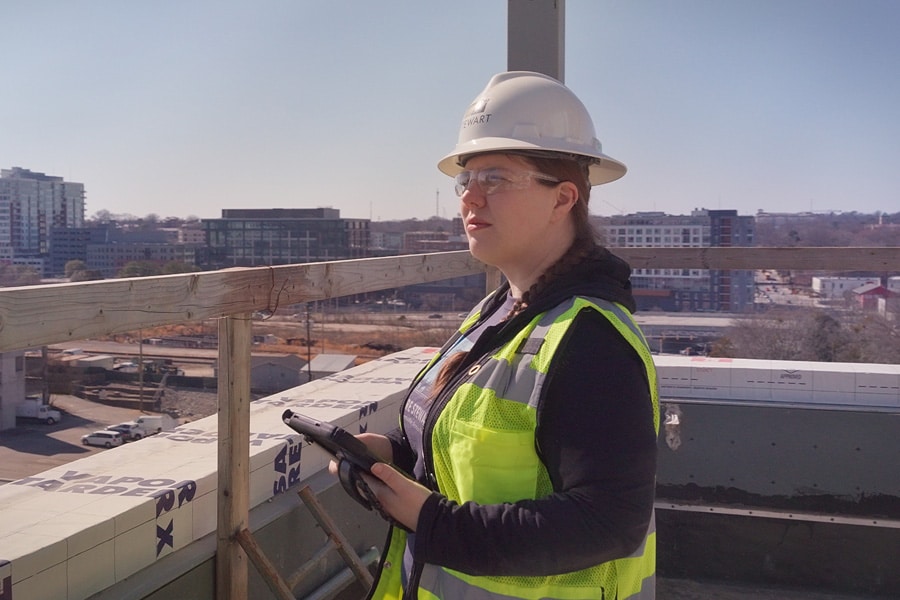Prefab Logic is the leading modular construction consulting company in the US, offering experienced guidance to prefab and modular startups as well as traditional stick building companies. Based in Boise, Idaho, Prefab Logic’s client list includes Marriott, Hilton and Factory_OS. Prefab Logic is also expanding operations to the East Coast this year. Recently, Prefab Logic’s multifamily Chamonix project took first place in the permanent modular multifamily division at the 36th Annual World of Modular Awards of Distinction.
We caught up with Prefab Logic cofounder Curtis Fletcher for a conversation on the modular industry in the United States, and how Prefab Logic views the challenges facing traditional building and the opportunities they present for owners and builders that want to go modular.

Built Blog: Few companies have worked in such a range of projects as Prefab Logic. What sets PFL apart and ahead in the modular industry?
Fletcher: Our dynamic team, workflow and technologies are what sets us apart. From our designers to product managers to the business development professionals, we all share a real and legitimate passion for the modular industry. We have extensive modular experience and we extend that experience to our investment in R&D; that puts us in a great position to offer resources to our clients and manufacturers.
Built Blog: We’ve seen rapid advancements in digital design tools for architects and engineers; what technologies do you believe contractors and builders should make themselves familiar with now as modular continues to grow?
Fletcher: A major contributor has been the growth of BIM (building information management). The adoption of BIM throughout the AEC community has accelerated, and it’s the perfect technology to demonstrate the scalability and feasibility of modular construction. And, we always recommend using VR for builders and contractors, so that we can all walk through projects at a 1:1 scale in a VR environment to get a true sense of what’s going on and what issues may exist. It is an amazing tool that can present a far better understanding of the project than can possibly be observed on a screen. By designing and examining modular plans digitally, we’re able to keep contractors, clients and owners on the same page.
Built Blog: Do you ever turn down projects or recommend against modular for owners, and if so, can you provide an example or explain the reasons why? What problems can’t modular solve, or solve yet?
Fletcher: Absolutely. We have a fine-tuned project qualifying program to review and make recommendations very early in the process. Our Modular Feasibility Study (MFS) is a complete project review that establishes expectations and takes a deep dive into the important elements and challenges a project may have in achieving success in modular form.
Our goal is to qualify or disqualify projects quickly so the owners don’t waste time chasing something that just won’t work with modular.
Sometimes projects are just too far along or have too many constraints to have modular fit into the program, but many times we are able to help our clients pivot to a modular solution. It all comes down to the initial design and the available flexibility in the design.
Built Blog: What human qualities or abilities, in your opinion, are essential to building and can never be replaced, and how do you find the happy union between people and technology?
Fletcher: Though we do see the need to automate due to the obvious lack of available labor, people will always be a necessary component of building. At the factory, the human ability to make judgement calls or to adapt readily to unexpected situations is a difficult trait to replicate and can be extremely expensive. The union between technology and people will push the boundaries of the way we build and design products over the coming years. It’s an exciting time for builders, manufacturers and designers. We believe the work force in the coming years will benefit greatly from the improved environments being created.
Built Blog: Between housing, office, manufacturing, medical, hospitality or any other particular industry you have in mind, which stands to gain the most from a modular approach to new construction?
Fletcher: All of these sectors have huge potential gains with modular products. The difficulty is putting the industry into a position where people can truly understand and embrace the future, and we are extremely focused on helping to build an industry that can sustain over the long haul. It’s a huge goal and it takes more than just creating some products or manufacturing; it’s pushing everything into a position to be successful and creating significant momentum with a whole lot of varied groups that have the desire and ability to do something better. We believe the industry is ready and we are surrounded by some really great people in this country that can help make it happen.















